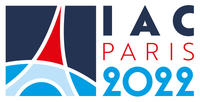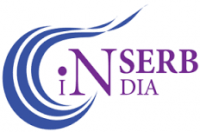›Applications of Data Science in Astrophysics and Gravitational Wave Research - Data Science in Astrophysics (DSAP-2019)
Data mining, machine learning, and knowledge discovery has recently taken center stage of research in computer science and Information technology. These areas can be thought as outgrowth of multivariate statistics, which has been used for analysis and interpretation of large data, which now is known as Big Data. Astronomy has a long history of acquiring, systematizing, and interpreting large quantities of data. Starting from the earliest sky atlases through the first major photographic sky surveys of the 20th century, this tradition is continuing today, and at an ever increasing rate. Like many other fields, astronomy has become a very data-rich science, driven by the advances in telescope, detector, and computer technology. Numerous large digital sky surveys and archives already exist, with information content measured in multiple Terabytes, and even larger, multi-Petabyte data sets are on the horizon. Systematic observations of the sky, over a range of wavelengths, are becoming the primary source of astronomical data. Numerical simulations are also producing comparable volumes of information. Data mining promises to both make the scientific utilization of these data sets more effective and more complete, and to open completely new avenues of astronomical research.
Since 11 February 2016, the first detection of gravitational wave was announced by LIGO collaboration, the research in detection and analyzing gravitational waves from astrophysical observations have become an intriguing field of research. The second observation of gravitational waves was made on 26 December 2015 and announced on 15 June 2016. Barry Barish, Kip Thorne and Rainer Weiss were awarded the 2017 Nobel Prize in Physics for leading this work. Indian astrophysical and astronomical communities have also contributed significantly into these detections. This has lead to establish the LIGO-India gravitational-wave observatory, which will provide a great opportunity to the Indian data scientists and Physics community to work together. LIGOIndia project will be a part of the worldwide network. The project recently received the inprinciple approval from the Indian government. This initiative is a collaborative project between consortium of Indian research institutions and the LIGO Laboratory in the USA, along with its international partners Australia, Germany and the UK. Hence it is high time for Indian Data scientists and engineers to collaborate with scientists working in such cutting edge research which has been recognized by the government of India some of the thrust areas of research in the country.
Track this event on your Apple calendar














 India
India